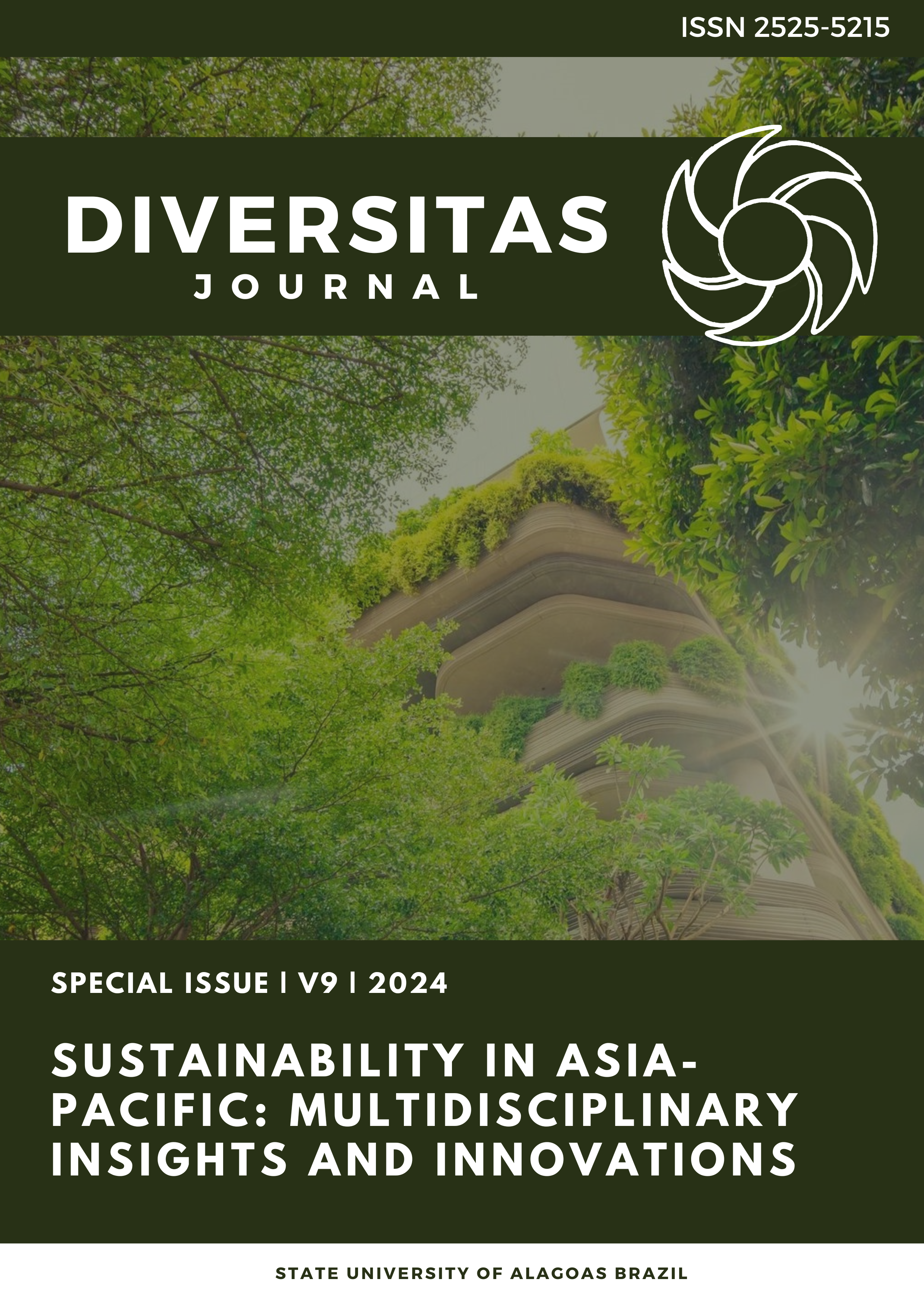Reading motivations, strategies, and interventions of teachers in bridging learning gaps
DOI:
https://doi.org/10.48017/dj.v9i1_Special.2967Palabras clave:
Motivations in Reading, Strategies in Teaching Reading, InterventionsResumen
Los cambios en el panorama educativo debido a la pandemia permitieron a una agencia comprender la situación en las escuelas primarias ubicadas en una zona urbana pobre de Filipinas para fortalecer la alfabetización, particularmente en lectura. Si bien la mayoría de los estudios sobre lectura, especialmente en Filipinas, investigaron el rendimiento en lectura y las formas de aumentar la fluidez lectora de los alumnos, es importante investigar también las motivaciones, estrategias e intervenciones de los docentes. Este estudio cualitativo describió la motivación, las estrategias y las intervenciones de los docentes para cerrar las brechas de aprendizaje en lectura. Estos maestros provienen de escuelas primarias seleccionadas ubicadas en la División de la ciudad de San Juan, Filipinas. Según los resultados, los maestros están motivados porque quieren enseñar mejor el contenido y porque su preocupación por los estudiantes los motiva. Además, el uso de diversas estrategias de lectura, como la libre elección de lectura, actividades fonológicas y la empatía al nivel de los estudiantes, se fortalece mediante intervenciones orientadas a docentes, estudiantes y comunidad.
Métricas
Citas
Aarnoutse, C. & Schellings, G. (2003). Learning reading strategies by triggering reading
motivation. Educational Studies, 29:4, 387-409, DOI: 10.1080/0305569032000159688
Brandt, L. Sharp, A.C., Gardner, D.S. (2021). Examination of teacher practices on student
motivation for reading. International Literacy Association, 74:6, 723-731, DOI: 10.1002/trtr.1999
Braun, V., Clarke, V. (2006) Using thematic analysis in psychology. Qualitative Research in
Psychology, 3:2, 77-101
Cano, E.V., Cabrera. A., Gomez, C.H. & Meneses, E. L. (2020). Socio-family context and it’s
influence on students’ PISA reading performance scores: evidence from three countries in three continents. Educational Sciences: Theory and Practice. Vol. 20. No. 2. https://doi.org/10.12738/jestp.2020.2.004
Carr, M. & Borkowski, J.G. (1989) Attributional training and the generalization of reading
strategies with underachieving students, Learning and Individual Differences, 1, pp. 327–341.
De Guzman, C. (2021). The Philippines still hasn’t reopened its schools because of COVID-
What is this doing to children? Time. https://time.com/6124045/school-closures-covid-education-philippines/?amp=true
Dela Peña, K. (2023). https://asianews.network/philippines-rank-2nd-to-worst-in-grade-5-
students-reading-math-skills-in-south-east-asia/#:~:text=Philippines%20rank%202nd%20to%20worst,Asia%20News%20NetworkAsia%20News%20Network
De Vera, B.O. (2022). Lockdown’s impact: UNICEF cites poor reading skills among PH kids.
Gutierrez, J., Bilefsky, D. (2021). With schools closed, COVID-19 deepens a Philippine
education crisis. New York Times. https://www.nytimes.com/2021/09/13/world/asia/philippines-students-remote-covid.amp.html
Kayunou, I. & Firat, T. (2020). Investigating reading literacy in PISA 2018 assessment.
International Electronic Journal of Elementary Education.Vol 13 (2), pp. 263-275.
Mwesiga, A. & Okendo, E.G. (2018). Levels of Teachers Commitment to the Teaching
Profession in Secondary Schools in Kagera Region, Tanzania. Research on Humanities and Social Sciences, Vol. 8, No. 14.
OECD (2018). Programme for International Student Assessment (PISA) Results from PISA
https://www.oecd.org/pisa/publications/PISA2018_CN_PHL.pdf
Risinger, A. (2013). Teacher reading motivation practices. Theses. 116.
https://digital.library.ncat.edu/theses/116
San Juan, R. (2019). Philippines lowest in reading comprehension among 79 countries.
Schiefele, U. (1991). Interest, learning, and motivation. Educational Psychologist, 26(3-4),
–323. https://doi.org/10.1207/s15326985ep2603&4_5
Shea, M. & Ceprano, M. (2017). Reading with understanding : A global expectation. Journal
of Inquiry & Action in Education. Vol. 9 (1), pp. 48-68.
UNICEF (2021). Filipino children continue missing education opportunities in another
school year of school closure. Retrieved from https://www.unicef.org/philippines/press-releases/filipino-children-continue-missing-education-opportunities-another-year-school
Van Kraayenoord, C.E. & Schneider, W.E. (1999). Reading achievement, metacognition,
reading self-concept and interest: a study of German students in Grades 3 and 4, European Journal of Psychology of Education, 14(3), pp. 305–324.
Wanzek, J., Petscher, Y., Al Otaiba, S., Rivas, B. K., Jones, F. G., Kent, S. C., Schatschneider,
C., & Mehta, P. (2017). Effects of a year long supplemental reading intervention for students with reading difficulties in fourth grade. Journal of Educational Psychology, 109, pp. 1103-1119
Wigfield, A. (1997). Reading motivation: A domain-specific approach to motivation.
Educational Psychologist, 32 (2), 59-68
Descargas
Publicado
Cómo citar
Número
Sección
Licencia
Derechos de autor 2024 Ma. Junithesmer Rosales

Esta obra está bajo una licencia internacional Creative Commons Atribución 4.0.
O periodico Diversitas Journal expressa que os artigos são de unica responsabilidade dos Autores, conhecedores da legislação Brasileira e internacional. Os artigos são revisados pelos pares e devem ter o cuidado de avisar da possível incidencia de plagiarismo. Contudo o plagio é uma ação incontestavel dos autores. A Diversitas Journal não publicará artigos com indicios de Plagiarismos. Artigos com plagios serão tratados em conformidade com os procedimentos de plagiarismo COPE.
A violação dos direitos autorais constitui crime, previsto no artigo 184, do Código Penal Brasileiro:
“Art. 184 Violar direitos de autor e os que lhe são conexos: Pena – detenção, de 3 (três) meses a 1 (um) ano, ou multa. § 1o Se a violação consistir em reprodução total ou parcial, com intuito de lucro direto ou indireto, por qualquer meio ou processo, de obra intelectual, interpretação, execução ou fonograma, sem autorização expressa do autor, do artista intérprete ou executante, do produtor, conforme o caso, ou de quem os represente: Pena – reclusão, de 2 (dois) a 4 (quatro) anos, e multa.”


















